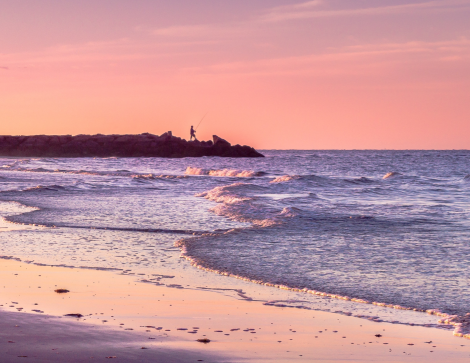I was born into a divide. The year was 1975 and the place is Beirut, once the Switzerland of the East, which became, in my earliest reminiscences, a line in blood. War had erupted in the Lebanese Civil War, neighbor against neighbor, Christians and Muslims and everyone in between. For seventeen years, my adolescence was punctuated by gunfire and guided by fear.
Time was counted in explosions. My dad had a strategy: after the second blast, we'd move. We'd vacate our beds for an in-building suite, then proceed—like a dreary, habitual process—to the hallway, downstairs to the building lobby, and finally, when the world went completely "crazy," to the black, packed sanctuary. Death wasn't something you theorized about; it was a shard of airborne metal my brother took months to dig out of his body. It was the 70kg rocket that tore through two stories and came to rest where my head had lain. It was my mother's shattered legs, splintered as she made her way through a city left in rubble.
Life would come back to flower in the patches of peace with a passionate, glorious intensity. I clung to school, to friends, to the sun—anything that felt like freedom. I found solace in the quotidian routine of studying, hanging around after school, my Catholic school a sanctuary where I, a Muslim boy, could find peace. My dad would get permission to cross over the "Green Line" into East Beirut to go spend Christmas with his Christian buddies and they would visit us for Eid. These were flashes of our shared humanness, fleeting glimpses of a world that might be.
The war ended when I was 17 years of age; at least that war. Clutching in my hand a finished application for Concordia University in Canada, I made my choice: I wanted out. I wanted the echo of sirens in my rearview mirror once and for all. but that didn’t happen then. I was too young to leave on my own. When I completed my bachelor's degree, I did. I immigrated but struggled not to glance back.
I left the war but the war never really left me. For many years after, I would wake up at night from the slightest sound, my heart hammering and my body readying itself to escape. These inerasable memories were like ghosts I wrestled with to control. And now, 28 years later, I feel a quiver of déjà vu. War is crawling back into my life and the lives of the ones I cherish. This time, no Plan B, no distant shore out of reach of the rising tide. Everywhere in Asia and Europe, the Americas and Africa, the drums of war beat, and we are all being numbed by the din.
I see now what I did not understand then. War is not an act of nature; it is a human-made one, made. It's fueled by greed in a few in power, ruling over the many. They press the hard-wired buttons in our brains—the ancient, tribal need to separate the world into "Us" and "Them." They feed us a diet of misinformation and fear, so that "They" are made less human, more monster, not worthy of sympathy.
We are all susceptible. Science shows us that this estrangement is an acquired reflex, an adaptation so easily warped into a bludgeon. It is how ordinary people, folk like you and me, can be conditioned to commit terrible acts. But what is learnt can be unlearnt. The line separating "Us" from "Them" can be erased. The war ends when we choose to look into each other and recognize ourselves.

